On 13 October 2021, the “H2VLC Valencia Hydrogen Valley” project was presented at the Valencia City Council headquarters, with the participation of more than 40 companies, entities and institutions. The Pact is led by the Fundacion Valenciaport, Valencia City Council, the Polytechnic University of Valencia and the Generalitat Valenciana. These institutions will promote the use of hydrogen as a fuel in the area of influence of the city of Valencia.
Valencia Hydrogen Valley
Valencia Hydrogen Valley is promoted by the Valencia City Council, the Generalitat Valenciana, the Universitat Politènica de València and the APV, together with the Valenciaport Foundation, to coordinate, create synergies and promote research into green hydrogen in the transport and logistics sector in Valencia and its metropolitan area. This project involves more than 30 companies and SMEs, five research centres, eight public entities, three spin-offs, 13 investment initiatives and eight technological development projects that mobilise more than 160 million euros of investment. The H2VLC project will be coordinated from the Las Naves innovation centre and will be eligible for financial support from the Spanish government’s Recovery, Transformation and Resilience Plan.
H2VLC is articulated around 21 projects, ranging from the construction of specific infrastructures for the generation and dispensing of green hydrogen for transport, to the acquisition of trucks, buses, vans, urban service vehicles and industrial logistics transport vehicles powered by green hydrogen. It includes the development and production of a hydrogen tram, as well as commercial technologies for the generation, consumption and integrated management of the green hydrogen value chain, with projects to be carried out by research centres of the UPV and the UV, in collaboration with different companies in the Valencia Region.
More than 40 Valencian companies, institutions and entities have already joined the initiative, including Consum, Aguas de València, BP, Balearia, EMT, Stadler, the Gimeno Group, Pavasal, FGV, DAM, ETRA, Transvia, the Alonso Group, the Sociedad de Agricultores de la Vega, and the Valencian Federation of Transport and Logistics Entrepreneurs (FVET). It also has the support of three reference research centres of the UPV -the CMT-Thermal Engines Institute, the Institute of Chemical Technology (UPV-CSIC) and the Institute of Energy Engineering-, another one of the University of Valencia -the Institute of Molecular Science, ICMOL-, and the Technological Institute of Energy (ITE).
H2PORTS, a pioneering initiative in port activity
The European project “H2PORTS – Implementing Fuel Cells and Hydrogen Technologies in Ports” coordinated by the Valenciaport Foundation, in close collaboration with the Port Authority of Valencia, and financed by the Fuel Cell and Hydrogen Joint Undertaking (FCH JU) programme of the European Union, has as its main objective to test and validate hydrogen technologies on port machinery that will provide applicable and real solutions without affecting the performance and safety of port operations and producing zero local emissions.
The H2Ports project will involve a total investment of 4 million euros and involves, in addition to the Valenciaport Foundation and the Port Authority of Valencia, the National Hydrogen Centre, and the private companies MSC Terminal Valencia, Grimaldi Group, Hyster-Yale, Atena Distretto Alta Tecnologia Energia Ambiente, Ballard Power Systems Europe and Enagás.
Partnership
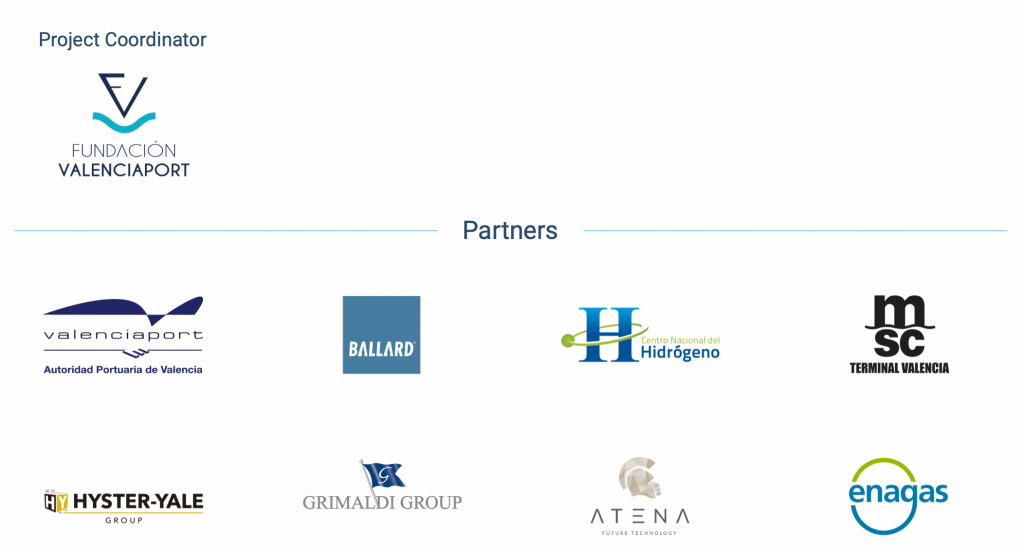

Carolina Navarro Correcher
Director of Port-City, Cruises and Mobility at Valenciaport Foundation
Share this article in your social media
Although we ensured to have up-to-date and accurate information, the publisher OPEN ENLoCC, nor the editor and the author, are not liable for errors and omissions. The publisher and the editor did not test products or services described and their inclusion does not imply any form of endorsement. By accepting advertisements in this publication, the publisher does not warrant their accuracy, nor accept responsibility for their contents. The publisher welcomes unsolicited manuscripts and illustrations but can accept no liability for their safe return. Reproduction (in whole or in part) of any text, photograph or illustration contained in this publication without the written permission of the publisher is strictly prohibited.
© 2022 OPEN ENLoCC All rights reserved.
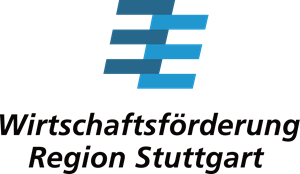 The publication of the European Review of Regional Logistics is supported by a grant of Wirtschaftsförderung Region Stuttgart GmbH (WRS).
The publication of the European Review of Regional Logistics is supported by a grant of Wirtschaftsförderung Region Stuttgart GmbH (WRS).
European regional review, Issue 2022/1
Other articles in this issue

Stuttgart Region’s position on hydrogen
Interview with Dr. Walter Rogg, head of the regional economic development corporation WRSSehr geehrter Herr Dr. Rogg,With combustion engines on the way out, why are
ST4W: Data flows for smart waterways
The ST4W (Smart Track for Waterways) project is supported by the INTERREG NWE programme of the European Union. It aims at promoting and increasing the
SMART-CORRIDORS project
Smart Supply Chain and Intelligent Intermodal Corridor Management for the China-Europe land-sea express line.” Recent research and business practice pinpoint that the integration of new
Promoting Hydrogen in Valencia
On 13 October 2021, the “H2VLC Valencia Hydrogen Valley” project was presented at the Valencia City Council headquarters, with the participation of more than 40
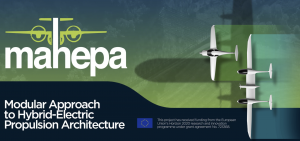
MAHEPA: Towards environmentally friendly hybrid-electric short haul air transportation
The Challenge The future competitiveness of the aviation sector largely depends on its environmental footprint. With the aviation industry responsible for 2 % of all
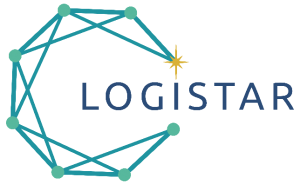
LOGISTAR – transport operations by horizontal collaboration, relying on real-time data
The LOGISTAR objective is to allow effective planning and optimizing of transport operations in the supply chain by taking advantage of horizontal collaboration, relying on
Hydrogen for transport in Stuttgart Region
Why is hydrogen a topic in Stuttgart Region? Stuttgart Region is a high-density area in the center of Europe. Its 2.8 million inhabitants rely heavily

FEDeRATED: a viable network of platforms for data sharing in freight transport and logistics
On 24th of November 2021 the Mid Term Review meeting of the FEDeRATED project was held at the Codognotto headquarters in Salgareda (Italy). The project
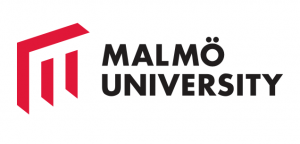
A relational business model of e-logistics facilities
“How come logistics operators’ return on investments is so low despite that warehouse operations are very cost efficient?”, is a strategic question that I and
19th European Transport Congress of the EPTS Foundation e. V. held in Maribor
On 7 and 8 October 2021, the University of Maribor hosted the international scientific congress “European Green Deal – Challenges and Solutions for Mobility and

Stuttgart Region’s position on hydrogen
Interview with Dr. Walter Rogg, head of the regional economic development corporation WRS Sehr geehrter Herr Dr. Rogg,With combustion engines on the way out, why
ST4W: Data flows for smart waterways
The ST4W (Smart Track for Waterways) project is supported by the INTERREG NWE programme of the European Union. It aims at promoting and increasing the
SMART-CORRIDORS project
Smart Supply Chain and Intelligent Intermodal Corridor Management for the China-Europe land-sea express line.” Recent research and business practice pinpoint that the integration of new
Promoting Hydrogen in Valencia
On 13 October 2021, the “H2VLC Valencia Hydrogen Valley” project was presented at the Valencia City Council headquarters, with the participation of more than 40

MAHEPA: Towards environmentally friendly hybrid-electric short haul air transportation
The Challenge The future competitiveness of the aviation sector largely depends on its environmental footprint. With the aviation industry responsible for 2 % of all

LOGISTAR – transport operations by horizontal collaboration, relying on real-time data
The LOGISTAR objective is to allow effective planning and optimizing of transport operations in the supply chain by taking advantage of horizontal collaboration, relying on
Hydrogen for transport in Stuttgart Region
Why is hydrogen a topic in Stuttgart Region? Stuttgart Region is a high-density area in the center of Europe. Its 2.8 million inhabitants rely heavily

FEDeRATED: a viable network of platforms for data sharing in freight transport and logistics
On 24th of November 2021 the Mid Term Review meeting of the FEDeRATED project was held at the Codognotto headquarters in Salgareda (Italy). The project

A relational business model of e-logistics facilities
“How come logistics operators’ return on investments is so low despite that warehouse operations are very cost efficient?”, is a strategic question that I and
19th European Transport Congress of the EPTS Foundation e. V. held in Maribor
On 7 and 8 October 2021, the University of Maribor hosted the international scientific congress “European Green Deal – Challenges and Solutions for Mobility and